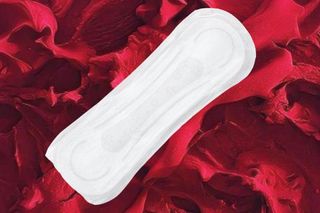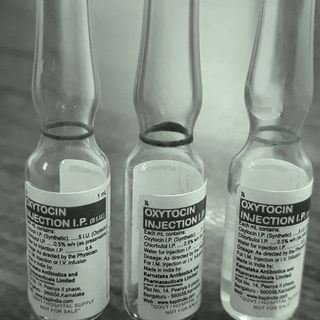
Government Eliminates GST on Menstrual Pads
But the move doesn’t guarantee lower prices for women.

After a year of protests against Goods and Services Tax (GST) on menstrual pads, the Goods and Services Tax Council has decided to do away with it, reports Scroll. Prior to the move, which came Saturday, pad manufacturers paid a 12% GST at sale, a cost passed on to consumers in the final price. One might call it a monthly tax for being a woman.
Yet it’s a move that may mean more in theory than in practice for women’s wallets. It comes down to semantics — whether the move exempts pad manufacturers from GST, or whether their GST is set at 0%.
A little background: Under the GST system, manufacturers pay two taxes, a GST at sale, and an input tax on raw materials. The government returns the latter, providing manufacturers also pay their GST. This means the only tax-cost getting passed on to consumers is GST. If pad manufacturers are still subject to GST, but the rate is set at 0%, then they still get a return on their input tax; thus the amount getting passed on to consumers drops, in theory, from 12% to 0%. If this is the case, pad prices will likely drop noticeably.
If pad manufacturers are exempt from GST, then they’ll no longer receive the return credit for the tax they pay on raw materials, which means though they will no longer be passing on the cost of their GST to consumers, they’ll have to pass on the cost of their input tax instead. It’s unclear if their input tax is more, less or equal to GST — and thus it’s unclear whether women will pay more, less or the same for their pads. Finance Minister Piyush Goyal told The Indian Express their calculations put the input tax on raw materials for pads at about 3 to 4% and that the government would ensure lower prices pads at sale.
Yet this is questionable, given that last year, the government seemed to think the exact opposite: that pad prices would increase without GST. Before GST was introduced, argued then-Finance Minister Arun Jaitley, pads were being taxed at 13%; instituting GST dropped the rate to 12%. The government claimed at the time that eliminating GST on pads would raise prices and allow foreign pad manufacturers, exempt of both input tax and GST, too easily overtake domestic companies.
Experts are presently debating the effect of the tax code change. Some say pad prices will go up. Some say prices will go down — though not by much. If Jaitley’s right, even if pad prices go up, there will be plenty of cheaper, foreign-made options for women to purchase. (We don’t know about you, but we care more about not spending a small fortune each month on menstrual supplies than we care about whether those supplies are made in India. #sorrynotsorry) Might … this be an unprecedented case of win-win for women? It seems almost too good to be true. Time, and our wallets, will tell.
Related


Government Oxytocin Supply Would Have Caused Shortages for Pregnant Women
